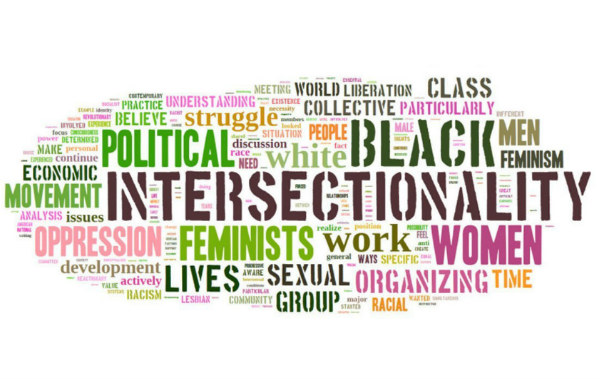
There is currently so much talk and focus on ‘intersectionality’. Hormoz writes about what it means.
Intersectionality, n.
The interconnected nature of social categorizations such as race, class, and gender, regarded as creating overlapping and interdependent systems of discrimination or disadvantage; a theoretical approach based on such a premise. (Oxford Dictionary)
So intersectionality takes into account people’s overlapping identities and experiences in order to understand the complexity of prejudices they face. Since the phrase was coined by Kimberlé Crenshaw, law professor and social theorist, in her 1989 paper ‘Demarginalizing The Intersection Of Race And Sex: A Black Feminist Critique Of Antidiscrimination Doctrine, Feminist Theory And Antiracist Politics.’ the word has been broadened to include the other protected characteristics.
It has been well received by many working in the spheres of diversity and inclusivity, activism and social mobility, where it has been highlighted that if you address the needs of one group, you may inadvertently affect the requirements of another. As you may imagine, it has its fair share of detractors amongst conservative groups (i.e. privileged white men who feel marginalised).
I wanted to write this article as on the 20th of June, we took part and delivered a workshop in a conference with the theme:
Unearthing the hidden voices: intersectionalities in higher education
For the first time, the National Association of Disabled Staff Networks (NADSN) and the LGBT+ Network of Networks in Higher Education (LGBT+ NoN) collaborated closely together, to present a joint one-day national conference on the theme of intersectionality of disability, sexuality and gender identity and other identities.
In preparation for this, I got thinking about my identity, something Jane and I got participants to consider. I thought about my original culture and upbringing in the 60s. How the culture was one of ‘seen and not being heard’, how respect for elders meant not being ‘strongly opinionated’. When I reflect, these were the beginnings of how I have felt as a ‘minority’ since then.
This followed with me coming to this country for education and going to boarding school; a character building’ period of being different in a 90% white middle class environment. At least it was a mixed boarding school! I was reminded of my race later on at college in Manchester by being called by a 70s term ‘dago’ (many have not heard of it!) and being attacked (escaping unscathed, apart from emotional bruises) by white guys throwing bottles and bricks at our multi-racial group.
Having to become a refugee whilst completing my degree was a period of uncertainty and worry. It was another reminder that I did not belong here … yet.
Then there was relief and revelation of the strongest sense of freedom when I could stay here. This coincided with a really tough period of questioning of my sexuality. I did internalise though; it was very difficult to talk about all the feelings that all of these experiences had created inside me. I came out to close family and friends and it was a mixed bag. It was very tough for some of the family to accept.
I carried on, determined to be my own person and in reality hiding large parts of me from many. I didn’t want people to know what I felt was my secret and a lingering feeling of shame, despite telling myself I was getting stronger about being myself.
All of this was a pressure cooker for me which resulted in a major breakdown 19 years ago. Something that I have written and talked about in the past few years. So much of what I went through to get to that point was about what others thought and their perceptions of me. Allowing so much for other to put them at ease with me rather than saying ‘this is what I want and who I am’!
So who am I? All of these experiences and needing to start from ground zero meant that I questioned everything and started building the new me. The mixture of self and outer oppression including cultural, attempted violence towards me, pressure due to not knowing my right to remain and an intense internal struggle due to my sexuality, were all contributing factors.
So once again, who am I? I have dropped all my labels. No, you can’t categorise me as a BAME, LGB man with mental health issues. I am more than that.
I am who I want to be. At last an amalgamation of everything I want to be and rejecting what I am not, or do not want to identify as. I am all of me!